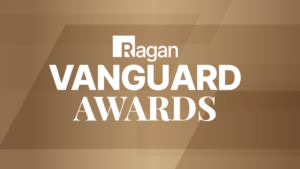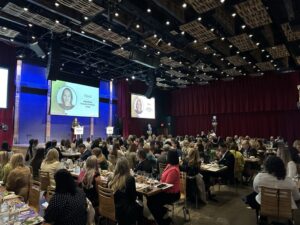Productivity tips from women who know how to get it all done
Tips from Ragan’s Women in Communications Awards Dynamic Do-ers.

We all have the same 24 hours in a day to get things done — but some people seem to make those hours stretch a bit farther.
That includes the winners of Ragan’s Women in Communications Dynamic Do-ers award. These women have productivity down to a science to accomplish more in their day and pull in big results.
Ahead of our awards ceremony in New York City on Feb. 28, we asked the Dynamic Do-ers to send us their very best productivity tip. This is what they said, lightly edited.
Andrea Chávez Wittman, manager, external communications, Children’s Health:
Schedule time on your calendar to check things off your list. This could include scheduling 30 minutes to an hour every day to respond to emails, return calls, etc.
Céline Heemskerk, head of internal and executive communications, EMEA & LATAM, Palo Alto Networks
For me the best approaches to efficient time management are to:
- Stay focused on the bigger picture — this prevents me from getting lost in the details.
- Know when speed is more important than detail — let go of perfectionism!
- Understand the people I am working with, so I can better partner and collaborate towards achieving common goals.
Golden tip: Don’t fall for the “just one more…” trap. Know when to leave your desk and close your laptop – set boundaries around logging off times. Strive to be balanced. Avoid burnout!
Zoë Hutchinson, VP of community and agency communications at Cayuga Centers:
My best time management tip is to schedule 30 minutes each morning for checking emails so that you can start your day knowing what’s in your inbox.
Also, I block 4-5 p.m. each Friday to tie up loose ends for the week and set goals for the following week.
Marisa Lemen, senior manager, communications, Chen Med:
Always plan your next day the day before with a priority pyramid that pinpoints the top 3 things you need to accomplish. Even if you day gets completely derailed, you know the 3 things that need to be accomplished regardless.
We all do our best work in the morning, use that time to tackle your hardest projects.
Bethridge Toovell, director of external communications & social media, Campbell Snacks at Campbell Soup Company:
At least once a week, I get up earlier than usual and tackle whatever is being neglected: my inbox, that project I’ve been meaning to get to. Or it could be personal (laundry, a friend’s birthday present). Not only are my kids still asleep, everything is just quieter early in the morning so I’m better able to focus.
Michelle Wargo, Director of Communications, Community Legal Services:
The best way to handle time management is by utilizing the tools available. Block out time on your calendar for your tasks, use websites like Trello to track your projects, and don’t be afraid to tell others who may request your help that you have higher priority jobs that need your attention first.
See the full list of Ragan’s Women in Communications award honorees here.








It’s self-propagating. The winners of awards from PR Daily and the affiliate keep getting promoted or hired into better jobs because those who hire feel more secure hiring winners. Who wouldn’t?
Then the winners keep seeming to make even better achievements because the higher you are, the more you can achieve and the more visible are your achievements.
One thing missing in the awards and achievements may be lack of pro bono work to make things better for not just our clients and employers and groups like minorities and gays but others for whom almost no one speaks.
Like people who spend money foolishly and then are out of money before the month is out of days. And kids who carry a weapon because other kids do. And people who are violent because when they were kids, violence is what was done perhaps even by their own parents to correct perceived wrongs.
When some get HIV or get addicted, many people think “it’s their own damn fault.” Maybe it is somewhat but maybe communications pros could intervene more, creating widespread recognition that carrying a weapon may lead to years in prison or death, as may addiction and violence even when violence seems justified and addiction seems (and is) like the result of a mistake, a stupid gamble .
In the army I was a cop for four months before getting into public information and although there’s a sickening number of accurate reports on police violence, there is way too little public information on violence AGAINST police.
Communicators could help correct this, and increase awareness of how once-violent prisoners get raped, beaten and killed.
I’d love to see awards from PR Daily and others for pro bono PR, PR to make things better for those now perceived as bad guys. They could be dissuaded, communications could help dissuade them, and PR Daily could help make that happen. Even after they violate, the perceived “bad guys” can still be helped and perhaps to an extent they should be.
Rewarding for me has been my defense of companies and industries that have been hated, sometimes justifiably but often not. What I did for them was to make known the good side, what they have done for the public and how the public may be better off if Washington doesn’t mess too much with companies and industries that help us. But who is doing this for individual, often poor, weapon-carriers and the violent? Who is communicating to help dissuade them? Do we help our clients and employers because they have money but ignore the unfortunates because they don’t?